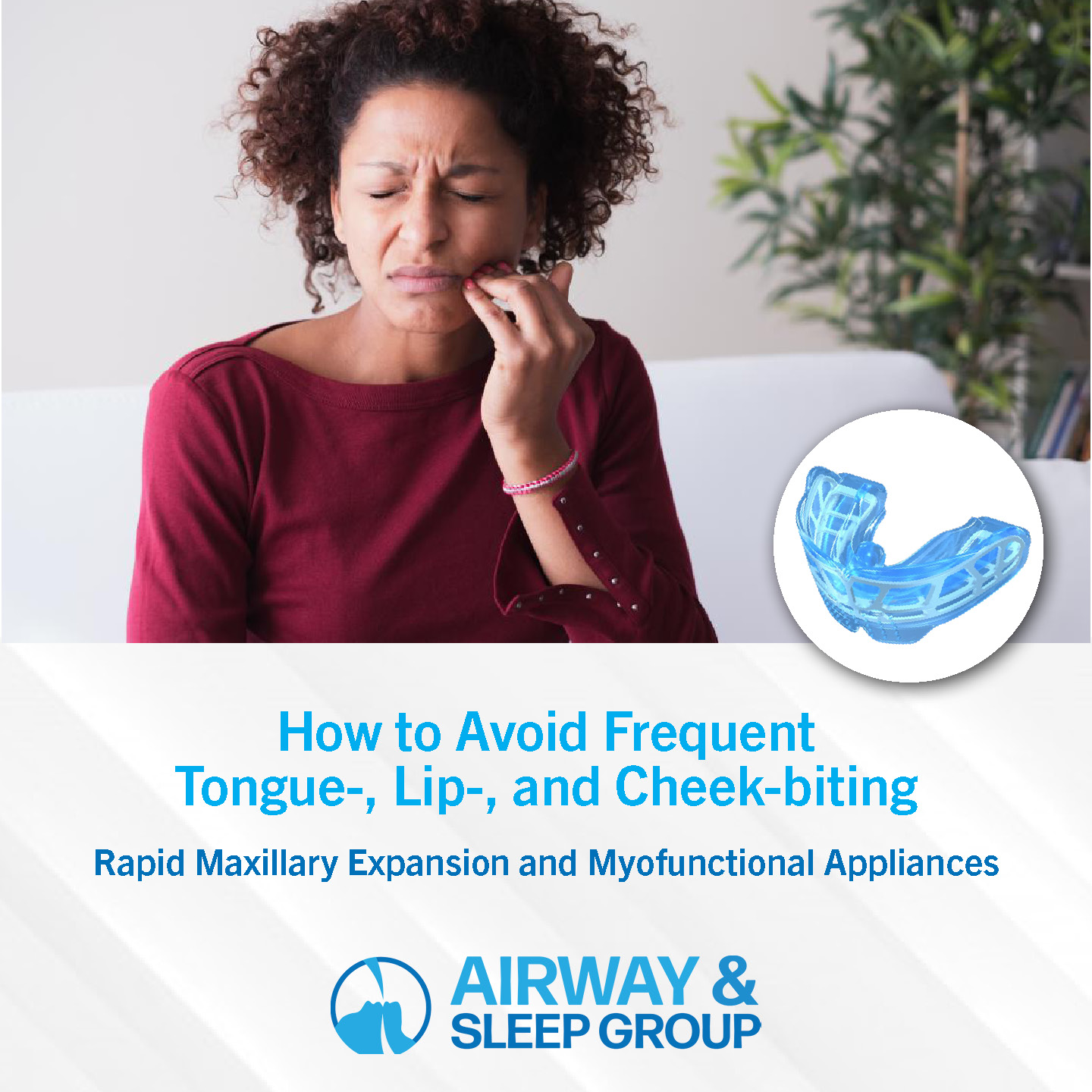Listen to our podcast here.
The Effects of Frequent Tongue-Lip and Cheek Biting
Some patients with malocclusion don’t realize that their tongue might have limited space, causing them to continuously or frequently bite or damage their tongue and lips. The lack of tongue space and proper chewing coordination is overwhelmingly due to a lack of proper palatal size and improper tooth alignment.
The position of the tongue at rest is considered to have a greater effect on the position of teeth than the short-term pressure of soft tissues around the mouth. It’s been shown that in patients with severe maxillary constriction, the space required to accommodate the tongue close to the roof of the palate is inadequate, and tongue posture is lower than desirable which can cause frequent tongue and/or cheek biting.
Chronic tongue, cheek, or lip bites could lead to more damaging conditions like oral cancer. Cheek biting can affect people of all ages, but it may be more likely in children. When someone repeatedly bites their cheek, the area can become thick, scarred, and paler than the surrounding tissue. Sometimes, the affected area may become inflamed with purple spots. In more severe cases, dentists may notice eroded tissue in the cheek.
Rapid Maxillary Expansion
Rapid Maxillary expansion addresses the need for the proper palatal size and correct tooth alignment. A study on the Stability of Maxillary Expansion and Tongue Posture concluded that a higher tongue posture can be obtained with Rapid Maxillary Expansion in children with no reported respiratory disturbances. Rapid Maxillary expansion addresses the creation of space inside the mouth leaving ample room for the tongue to eliminate the problem of cheek biting.
Myofunctional Appliances
A study on The Effects of Early Preorthodontic Trainer Treatment on patients that have front teeth, which are tilted forward and protruding outward, demonstrated that the pre-orthodontic trainer application lends itself to dentoalveolar changes that reduce this poor alignment and improve the patient’s facial profile by promoting favorable mandibular growth changes.
Much attention has been paid to the problem of controlling dentofacial growth interferences caused by abnormal lip and tongue function in the mixed dentition period. Various appliances have been presented for the treatment of this problem. The main purpose of these appliances has been to eliminate oral dysfunction, establish muscular balance, and correct or diminish maxillary incisor protrusion with correct positioning.
Myofunctional appliances have been used for many years. These appliances eliminate oral dysfunction, establish muscular balance, and correct or diminish maxillary incisor protrusion.
Contact Airway and Sleep Group
Get in touch with Dr. Caulkins at Airway and Sleep Group if you or a loved one has issues with tongue-lip or cheek biting. Our custom myofunctional appliance can help. Simply call our Reston office at (571) 244-7329 to schedule an appointment. You can also request more information by filling out our online contact form, and we’ll get back to you shortly.

